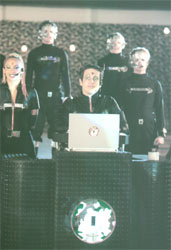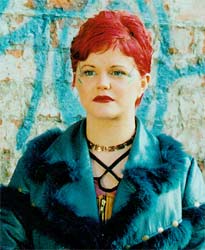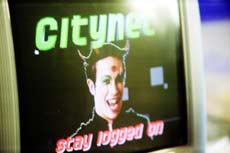 This week in World view we look at something that many of us don’t know we’ve got until they are taken away – human rights.
This week in World view we look at something that many of us don’t know we’ve got until they are taken away – human rights.
Dictionary definition
Right (rit) n. 1.what is just, fair treatment.
Salene wears the trousers
Midway through Tribe IV, Salene is elected city leader. She proves from the start that she’s one tough cookie and certainly not one to be messed with. She immediately insists that the city needs schools and hospitals. Salene says that health and education are “fundamental rights.” Do you agree? It certainly seems hard to imagine quality life without them.
RamŠ you dirty rat
Ram has tried his best to deprive the Virts of fundamental rights throughout the Technos’ occupation. Only Jay insisting on the provision of certain basic necessities gives the Virts any chance at all.
Ram turns off power and water at times when it is most inconvenient, using these things to manipulate for his own gain. Ram’s reality space experimentation on the Virts is in contradiction of their basic freedoms.
 Salene is correct in saying that in order to rebuild society, some fundamental rights need to be put in place. I think you would agree that any democratic and fair society needs to adhere to providing basic human rights.
Salene is correct in saying that in order to rebuild society, some fundamental rights need to be put in place. I think you would agree that any democratic and fair society needs to adhere to providing basic human rights.
RightsŠ they’re there in black and white
There exists a set of human rights that all people are entitled to have. The United Nations passed the Universal Declaration of Human Rights in 1948 and most countries have signed a pledge to protect these.
All people can claim the rights despite different gender, colour skin, religion, cultural group, belief or language.
The Technos, of course, fail miserably in this regard. Virts are treated unequally because they are part of a different cultural group. They are treated as second class citizens.
Here are some of the rights from the Declaration. See if you can spot which ones are broken by the Technos (most of them actually!)
 Rights of young people
Rights of young people
Most countries have laws specially to protect children. This is because they are vulnerable and open to exploitation. Notice how easily Mouse and, to a lesser extent, Sammy are manipulated and exploited by the Technos’ reality space gimmick.
Only the mall rats and particularly characters like Salene are able to warn and educate them with some words of wisdom.
Young people do not share the same rights as adults. For example they can not drive or vote until they are a certain age. They do, however, have some rights that adults do not have such as protection from imprisonment.
History but what about now?
It is a sad reality that basic rights have been violated throughout history. Some obvious modern examples would be the case of Black Americans and that of Bosnia. But it is not just history that gives us these grim examples. In fact, if we look hard enough we might just find some pretty scary things happening and it may not even be too far from home!
Does everybody in the world have rights?
No. Unfortunately. In some countries, certain groups or individuals are denied basic human rights. Political prisoners being held without a trial in unsatisfactory conditions is just one example of the injustices that do exist. Other examples might be child labour, torture, being denied legal help, being refused the right to protest and vote.
 Organisations who safeguard rights
Organisations who safeguard rights
Organisations such as Amnesty International go about publicising incidents where human rights are abused. They hope that this negative publicity will cause pressure for change.
Many famous celebrities are members of Amnesty International. They believe that by putting forward their names as spokespeople, the profile of the organisation will be raised and the plight of those in need will become better known.
What can you do?
Do you feel like helping people around the world who are denied rights? Yes? Maybe? Here’s how you could go about doing it.
Firstly you will need to make sure that you have your facts straight regarding the breach of human rights, so some research will be necessary. Amnesty International would be a good place to start. One of the most effective ways to make a difference is to write a letter to a Member of Parliament or to the government/embassy of the country concerned.
It’s important that you realise that you can make a difference.

